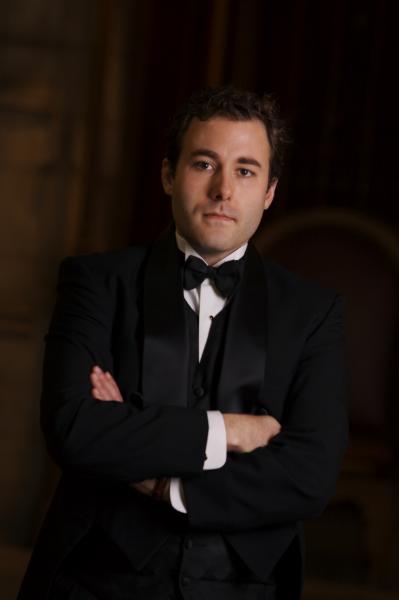Rockefeller Chapel offers a well-balanced program with Schütz rarity
Sunday afternoon on the University of Chicago campus, the Rockefeller Chapel Choir performed an epic and engrossing St. Matthew Passion—just not the one you’re thinking of.
Two seasons after the Chicago Chorale performed Bach’s more famous setting in the same venue, Rockefeller Chapel’s Quire and Place series programmed the Matthäuspassion by Heinrich Schütz. As explained in his program note, music director James Kallembach smartly split the Passion into five parts, pairing the first four with a corresponding motet from Francis Poulenc’s Quatre motets pour un temps de pénitence and the last with Gerald Finzi’s effusive Lo the full, final sacrifice.
In a concert setting, Schütz’s lesser-heard work can be tough to sit through; the score is mostly recitative and completely unaccompanied, though University organist Thomas Weisflog included occasional brief interpolations. The Rockefeller Chapel Choir and Kallembach persuasively demonstrated, however, that the Baroque composer’s score is replete with profound moments that are worth the wait.
After a lush Introitus sung by the full choir, the Evangelist (tenor Matthew Dean) entered from the back of the chapel, facing the choir. Jesus (bass-baritone Michael Hawes) sang facing him, taking advantage of the space for antiphonal and dramatic effect. Dean gradually migrated to the front, but would position himself anew for almost every episode, watching the tragic action unfold from different vantage points.
A strong Evangelist and Jesus are obviously crucial to any passion, and Dean and Hawes delivered in each role. Dean carried the action with his warm voice and crisp diction, and Hawes’s reliable baritone and presence, both authoritative and serene, was an ideal Jesus.
A memorable moment in Schütz’s score—and in Sunday’s performance—comes when Jesus cries out his dying words on the cross. Similar to the corresponding moment in Bach’s passion, Jesus’s lamenting “Eli, Eli, lama asabthani?” is echoed by the Evangelist; sung by Hawes then Dean, their voices swelling to fill the chapel, the moment was doubly heartbreaking.
Individual members of Kallembach’s youthful, talented choir stepped into the spotlight with great aplomb. Alto Lindsey Adams sang Judas’s tonally ambiguous, serpentine lines with clarity and charisma. Chaz Lee brought power and intensity to the villainous dual roles of Caiaphas and the false witness. Baritone Will Myers, impressed as Peter and Pontius Pilate, compellingly evoking the former’s vulnerability and latter’s steeliness.
Led emphatically by Kallembach, the Poulenc motets sprinkled throughout provided opportunities for the choir to trade canonic counterpoint for plush lyricism. Given performances sensitive and silky by the Rockefeller Chapel Choir, the motets offered tasteful breaks from the Schütz.
Like Bach’s St. Matthew’s Passion, Schütz’s telling ends with Jesus being sealed in his grave, to much lamenting. But the Finzi work carries optimistic tidings of Easter to come. The clouds of its minor-key opening are parted when the full-bodied anthem for choir and organ parts the clouds to close on a sunny, melismatic “Amen,” as though buoyed by faith. Weisflog offered expressive accompaniment throughout.
Soprano Kaitlin Foley shone all afternoon as Pilate’s Wife and as soloist in “Tristis est anima mea” and Lo, the full, finale sacrifice. Her limpid, gorgeous voice stunned in every solo turn, no matter how brief.
Yet it was Kallembach’s passionate stewardship that brought this well-balanced program alive, his skillful advocacy making the potentially dry Schütz compelling and memorable.
Poulenc’s Quatre Motets pour un Temps de Pénitence will be repeated 7 p.m. Thursday at Rockefeller Chapel, with Maurice Duruflé’s Ubi Caritas and Pange Lingua, a Gregorian chant.
Posted in Performances




